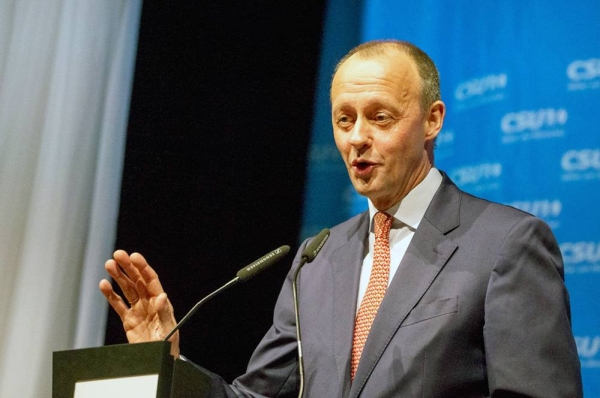
President Joe Biden’s performance in last month’s first televised presidential debate has ignited a firestorm of concern among Democrats about his capability to continue his reelection bid. In an interview with ABC, Biden dismissed the idea of stepping aside, labeling his debate performance as a “bad night” rather than an indicator of a deeper issue. “It was a bad episode, no indication of any serious condition,” the American president asserted, emphasizing exhaustion and a failure to follow his instincts in preparation as the culprits. Despite the rising anxiety among some Democratic lawmakers and other prominent figures, Biden remains resolute in his determination to stay in the race.
Sen. Mark Warner’s actions underscore the urgency of these concerns. Warner represents a growing faction within the party that is worried about Biden’s mental and physical stamina. The Virginia lawmaker plans to convene Democratic senators to discuss the future of Biden’s campaign. This anxiety is reflected in a Reuters/Ipsos poll taken after the debate, which revealed that one in three Democrats believe Biden should end his reelection bid.
Biden’s age and mental fitness were central topics in the televised interview. When pressed about taking a cognitive exam, he deflected, suggesting that his demanding schedule and daily workload were proof enough of his capability. “I have a cognitive test every single day. Every day I have that test, everything I do,” Biden said. He insisted that his reelection bid is driven by a belief that he understands what needs to be done to take the nation to a new level.
Despite the president’s assurances, skepticism among Democrats continues to grow. Prominent figures have openly called for Biden to step aside, arguing that doing so would preserve his legacy and prevent potential catastrophe for the party.
But the concerns are not limited to party insiders. The president’s debate performance has also been scrutinized by the public, with polls showing a mixed reaction. A Bloomberg News/Morning Consult poll conducted after the debate found that Biden trails Trump by 2 percent in key battleground states, though the gap is the smallest since October. This poll contrasts with national surveys that depict a more challenging picture for Biden, highlighting the volatile nature of the electorate’s perception.
In a bid to shift the narrative, Biden has focused on his accomplishments and criticized former President Donald Trump. During a rally in Madison, Wisconsin, he emphasized his achievements, such as canceling some student loan debt, nominating Ketanji Brown Jackson to the Supreme Court, approving gun safety policies and working with Congress on a sweeping climate change law. He also highlighted Trump’s past gaffes and what he described as “lies.”
With the election drawing closer, Democrats face critical decisions that will shape the future of the party and the nation.
Dalia Al-Aqidi
For his part, Trump has taken a sarcastic stance, advising Biden to ignore his critics and continue his campaign. On his Truth Social platform, Trump mockingly suggested that Biden should proceed with “alacrity and strength,” listing Biden’s policies as examples of his alleged failures.
The possibility of Vice President Kamala Harris stepping in as the Democratic nominee has also been a topic of discussion. While Harris appears to be the most obvious and viable option due to the immediate support she would receive from Biden’s campaign infrastructure, her potential candidacy is not without controversy. A Bloomberg News/Morning Consult poll found that only 42 percent of voters would support Harris for president, while a Reuters/Ipsos poll indicated that Trump leads Harris by 1 percentage point in a hypothetical matchup.
As the debate over Biden’s candidacy intensifies, the clock is ticking for the Democratic Party. The concerns about Biden are not just limited to internal discussions, but are becoming a prominent issue in public discourse. With the election drawing closer, Democrats face critical decisions that will shape the future of the party and the nation. The time for decisive action is now and the party must navigate these turbulent waters with care and urgency.
The Democratic Party is at a crossroads. The decision on whether to support Biden’s reelection bid or seek an alternative candidate is not just about the immediate future, but also the long-term direction of the party.
One of the critical issues that Democratic leaders must consider is the impact of Biden’s candidacy on down-ballot races. The presidential candidate’s performance often influences the outcomes of congressional and state-level elections. If Biden remains the nominee and struggles in the general election, it could negatively affect Democratic candidates across the country. Conversely, a strong and dynamic candidate at the top of the ticket could boost Democratic fortunes in closely contested races.
The potential candidacy of Harris is a significant factor in this equation. Harris has been a loyal and visible vice president and her elevation to the top of the ticket would represent a historic milestone. However, her poll numbers indicate a divided electorate, with significant opposition within the party and among the general public.
The current situation underscores the importance of solid leadership and strategic decision-making within the Democratic Party. Party leaders must proactively address concerns about Biden’s candidacy and explore all viable options.
In the coming weeks, the Democratic Party must also focus on articulating a clear and compelling vision for the future, which currently does not look bright or clear. The choices made now will shape the party’s agenda and impact on the country for years to come.
• Dalia Al-Aqidi is executive director at the American Center for Counter Extremism.












